Publications
Articles, publications, books, tools and multimedia features from the U.S. Institute of Peace provide the latest news, analysis, research findings, practitioner guides and reports, all related to the conflict zones and issues that are at the center of the Institute’s work to prevent and reduce violent conflict.
Question And Answer
Whither NATO at 75?
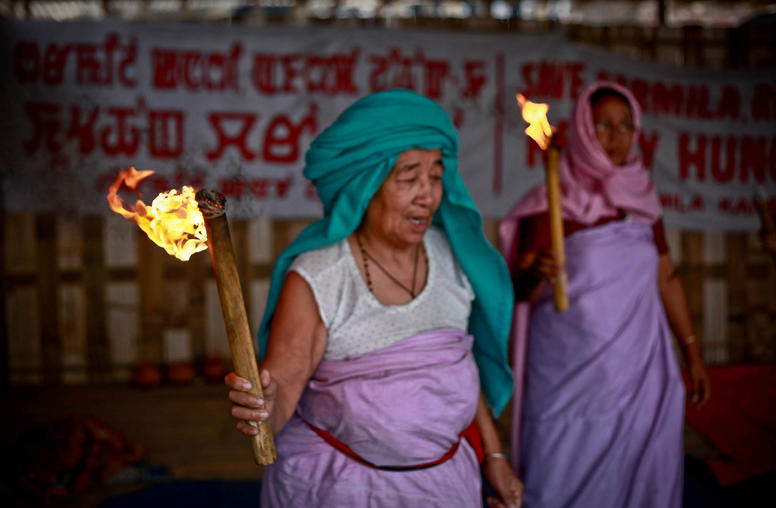
Indigenous Pathways to Peace
Many of the world’s Indigenous peoples live in unstable areas, struggling to survive as conflicts, transnational organized criminal networks and extractive projects upend their lives and livelihoods. Unfortunately, peace processes in these contexts are often negotiated at high political levels without the inclusion of Indigenous peoples. This can undermine the chances for success, as Indigenous peoples are a crucial population in some of the world's longest-running conflicts. But even further, excluding Indigenous people means overlooking how Indigenous traditions, rituals, and religious and political practices can help advance peace and resolve deadly conflict.
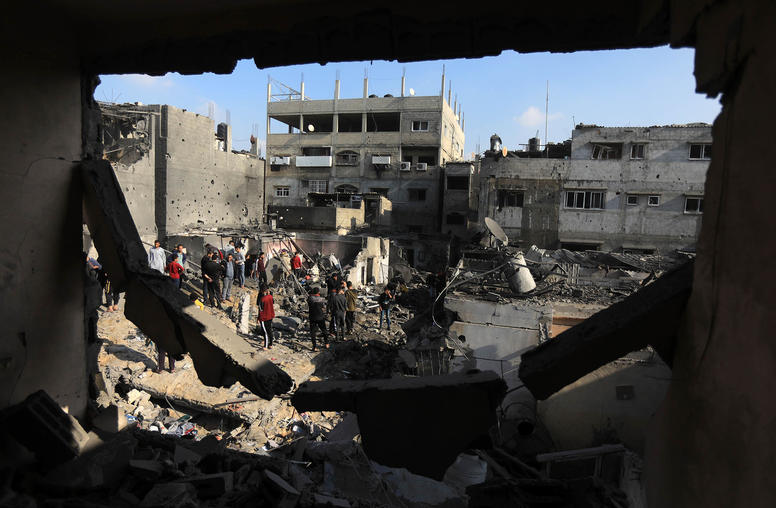
What Does the U.N. Cease-Fire Resolution Mean for the Israel-Gaza War?
On March 25, the United Nations Security Council (UNSC) passed Resolution 2728, calling for an “immediate” cease-fire in Gaza. The motion’s passage came after weeks of back and forth and posturing among the UNSC’s permanent and rotating members. The exact phrasing of the resolution and its relevance to the situation on the ground, as well as bilateral and multilateral relations — particularly U.S.-Israel ties — have been the subject of heavy public and media attention since Monday, raising questions about the resolution’s subtext, intent and limitations. USIP’s Robert Barron looks at these questions.
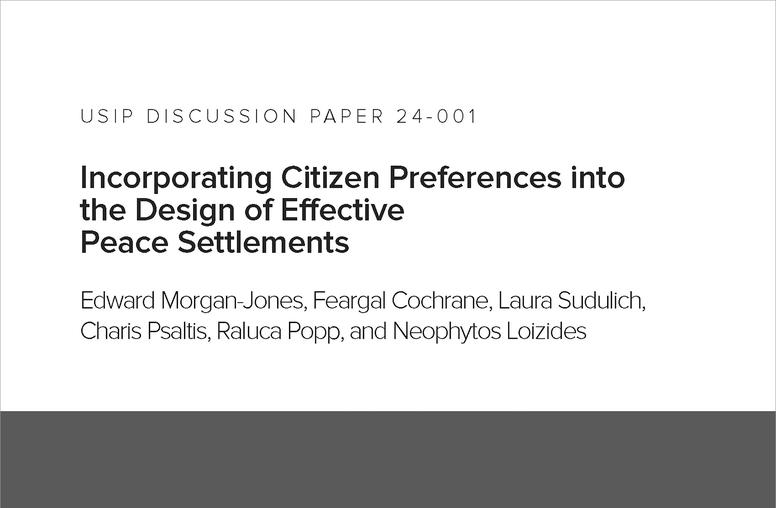
Incorporating Citizen Preferences into the Design of Effective Peace Settlements
This paper describes the use of conjoint survey experiments to identify citizen preferences with respect to a possible peace agreement in Cyprus and a border agreement in Northern Ireland. The recommendations offered in the conclusion emphasize the flexibility of the method and its transferability to other conflict settings. Results also suggest ways of reinvigorating stalled peace negotiations (Cyprus) or improving past deals (Good Friday Agreement/Brexit-Northern Ireland) and can help contending groups and mediators identify potential zones of agreement by revealing areas where contending groups’ preferences overlap or differ and where possible trade-offs exist that could lead to greater consensus.

The 2021 India-Pakistan Ceasefire: Origins, Prospects, and Lessons Learned
The February 2021 ceasefire between India and Pakistan along the Line of Control in Kashmir has—despite occasional violations—turned into one of the longest-lasting in the countries’ 75-year shared history. Yet, as Christopher Clary writes, the ceasefire remains vulnerable to shocks from terrorist attacks, changes in leadership, and shifting regional relations. With the ceasefire approaching its third anniversary, Clary’s report examines the factors that have allowed it to succeed, signs that it may be fraying, and steps that can be taken to sustain it.

Senior Study Group for the Sahel: Final Report and Recommendations
The United States has not traditionally viewed the Sahel as a region of vital interest, whether in terms of security or from an economic or business perspective. This has led to a pattern of reactive involvement shaped by the circumstances of specific events rather than proactive commitments. This pattern reveals the lack of a comprehensive strategy for the volatile Western Sahel region, which includes Burkina Faso, Chad, Mali, Mauritania, and Niger. In April 2022, President Joe Biden announced that the US government would advance the “U.S. Strategy to Prevent Conflict and Promote Stability” in coastal West Africa by prioritizing a partnership with Benin, Côte d’Ivoire, Ghana, Guinea, and Togo.

Transforming the Legacy of Children Born of War in Vietnam
During and after the Vietnam War, up to 500,000 “children of war” were born to foreign soldiers and local women in Vietnam. Amerasians — children of war fathered by U.S. soldiers — and adoptees raised abroad are now reclaiming their narratives and healing journeys.
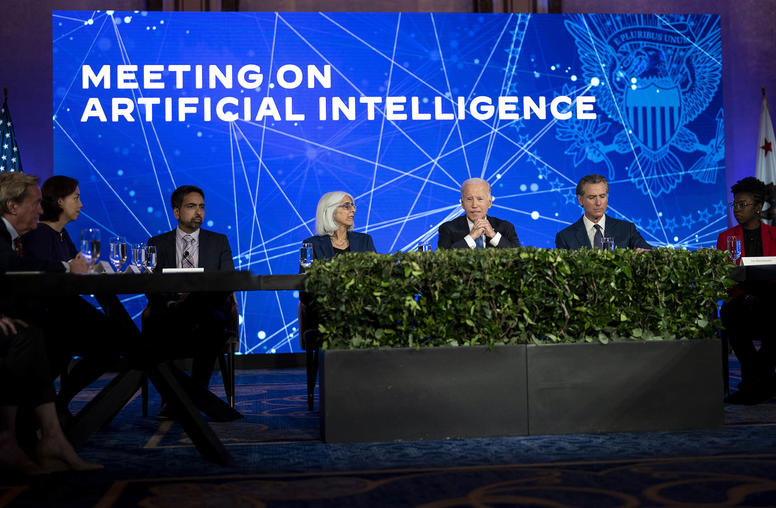
A Role for AI in Peacebuilding
Since OpenAI launched ChatGPT in fall 2022, there has been a tremendous amount of global attention on the risks and benefits of artificial intelligence (AI). With so many unknowns about the capacity of private companies and governments to harness this technology for peace and security, it is difficult for the public and private sectors to identify a clear and straightforward path on addressing AI’s challenges. In this evolving environment, peacebuilding organizations can and should play a critical role in engaging with companies, multilateral institutions and governments on AI development and application to advise and shape its uses to advance peace and mitigate societal harm that could contribute to conflicts.
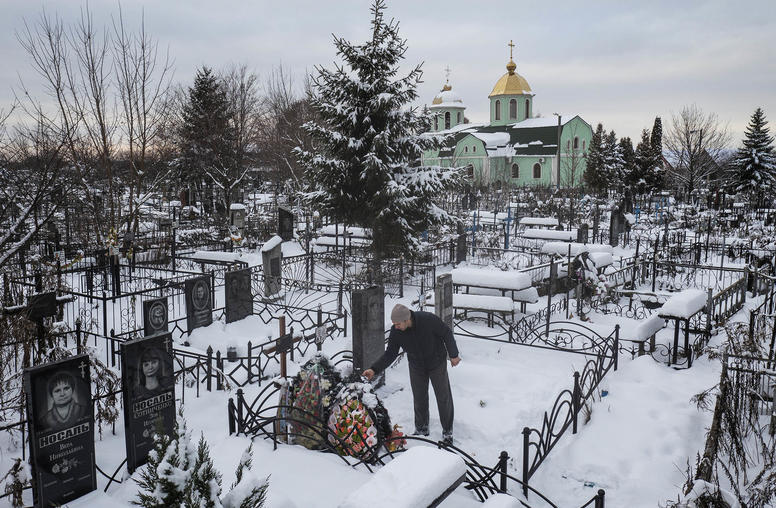
In Ukraine’s Second Winter of War, Peace Still Requires Justice
Last week, I had the privilege of meeting 12 female legal professionals from across Ukraine who were visiting Washington. They ranged from a prosecutor with the anti-corruption bureau to a supreme court judge, all eager to rebuild their country, making it stronger than before the war. One participant asked rhetorically: “What is peace? Is it the absence of war? Or is it something more — the prospect for justice? The ability to pursue prosperity?” I’ve been thinking about those words — and their implications for how the world should respond now to the Russian assault on Ukraine as it enters its second, hard winter.
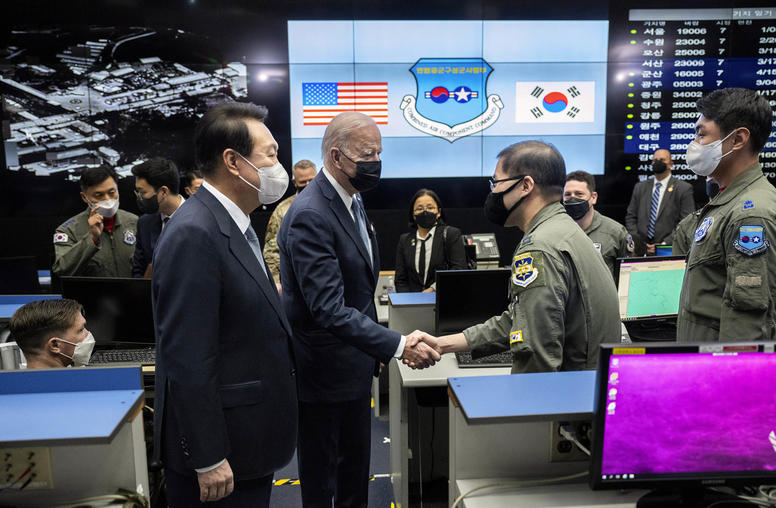
Three Key Lessons from Past North Korean Denuclearization Diplomacy
Despite widespread pessimism about the prospects for North Korea’s denuclearization and the utility of denuclearization diplomacy, Washington and Seoul continue to explore denuclearization dialogue with North Korea. In April, President Biden and President Yoon Suk Yeol of South Korea jointly confirmed in the Washington Declaration that, despite their primary focus on enhancing deterrence measures, they “remain steadfast in their pursuit of dialogue and diplomacy with [North Korea], without preconditions, as a means to advance the shared goal of achieving the complete denuclearization of the Korean Peninsula.”
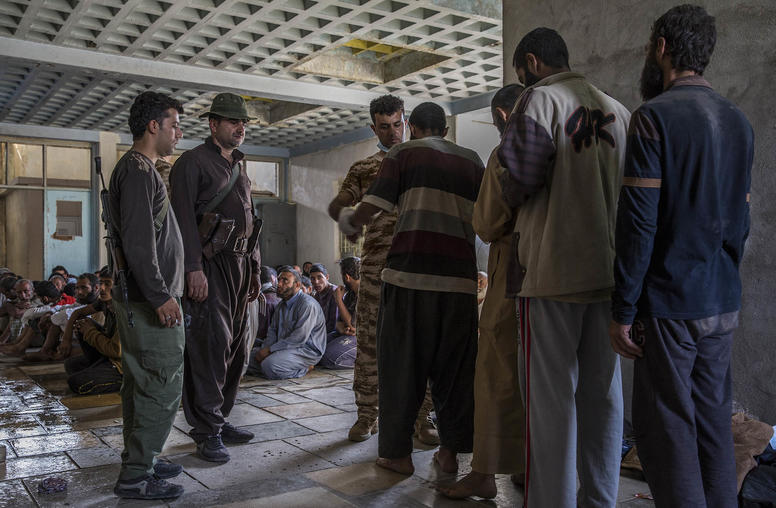
RISE Action Guide: A New Approach for Disengagement from Violent Extremism
On November 17, USIP will launch the Rehabilitation and (Re)integration through Individual, Social and Structural Engagement (RISE) Action Guide. The guide provides a peacebuilding framework to help local stakeholders, policymakers and program funders and implementers support people who are disengaging from extremist violence to reintegrate and reconcile with their local communities. RISE is also focused on supporting the recovery and well-being of affected people and communities.